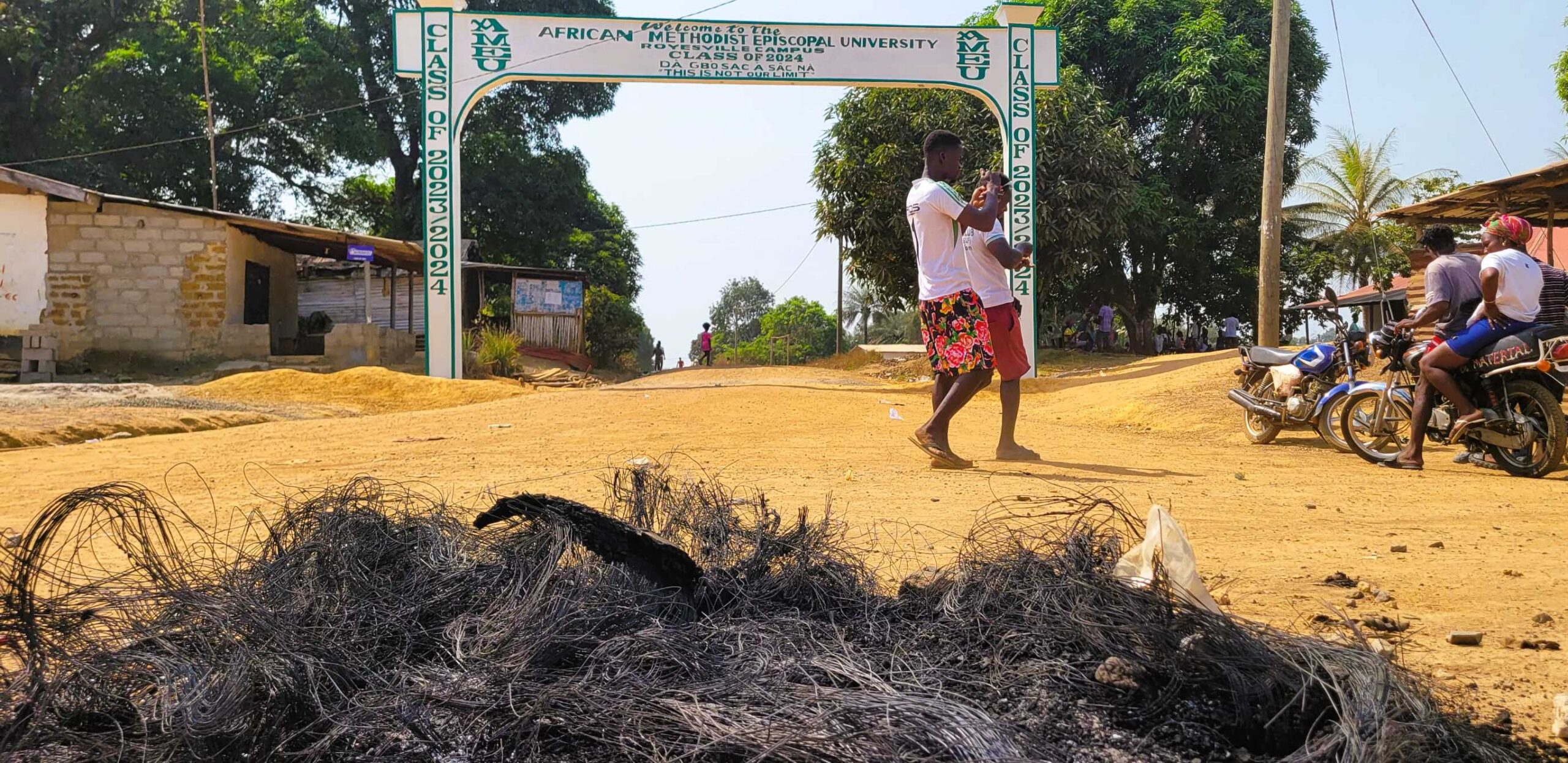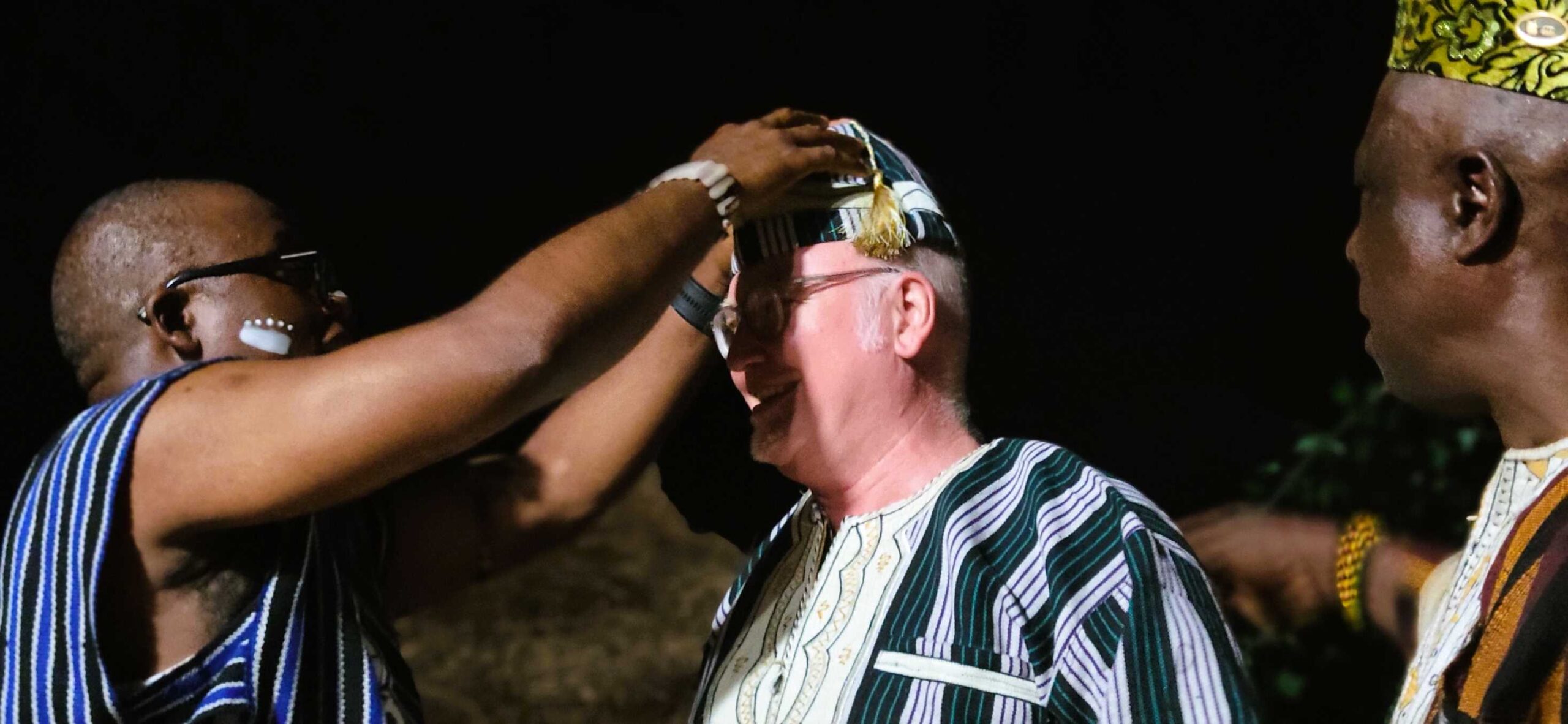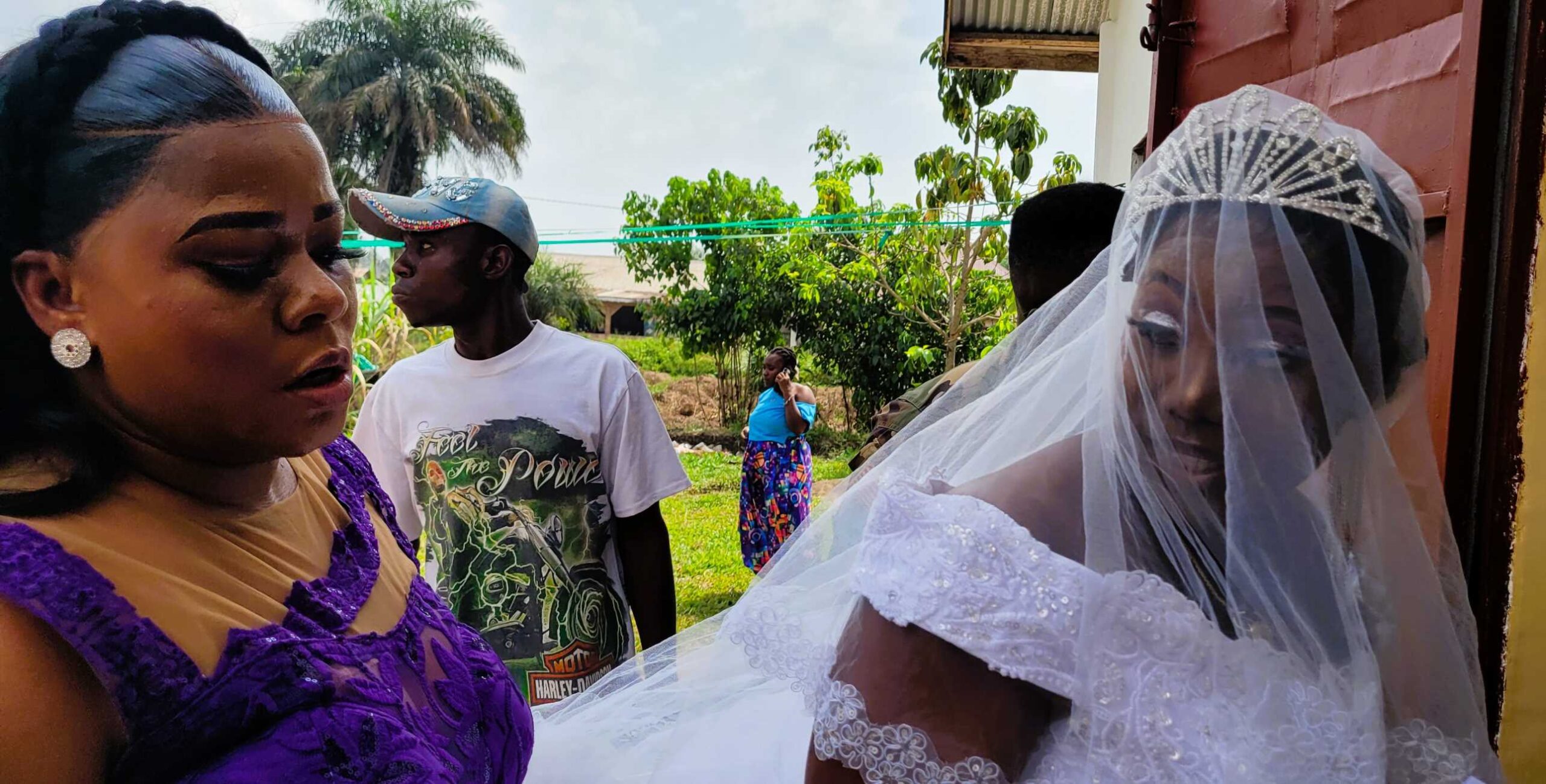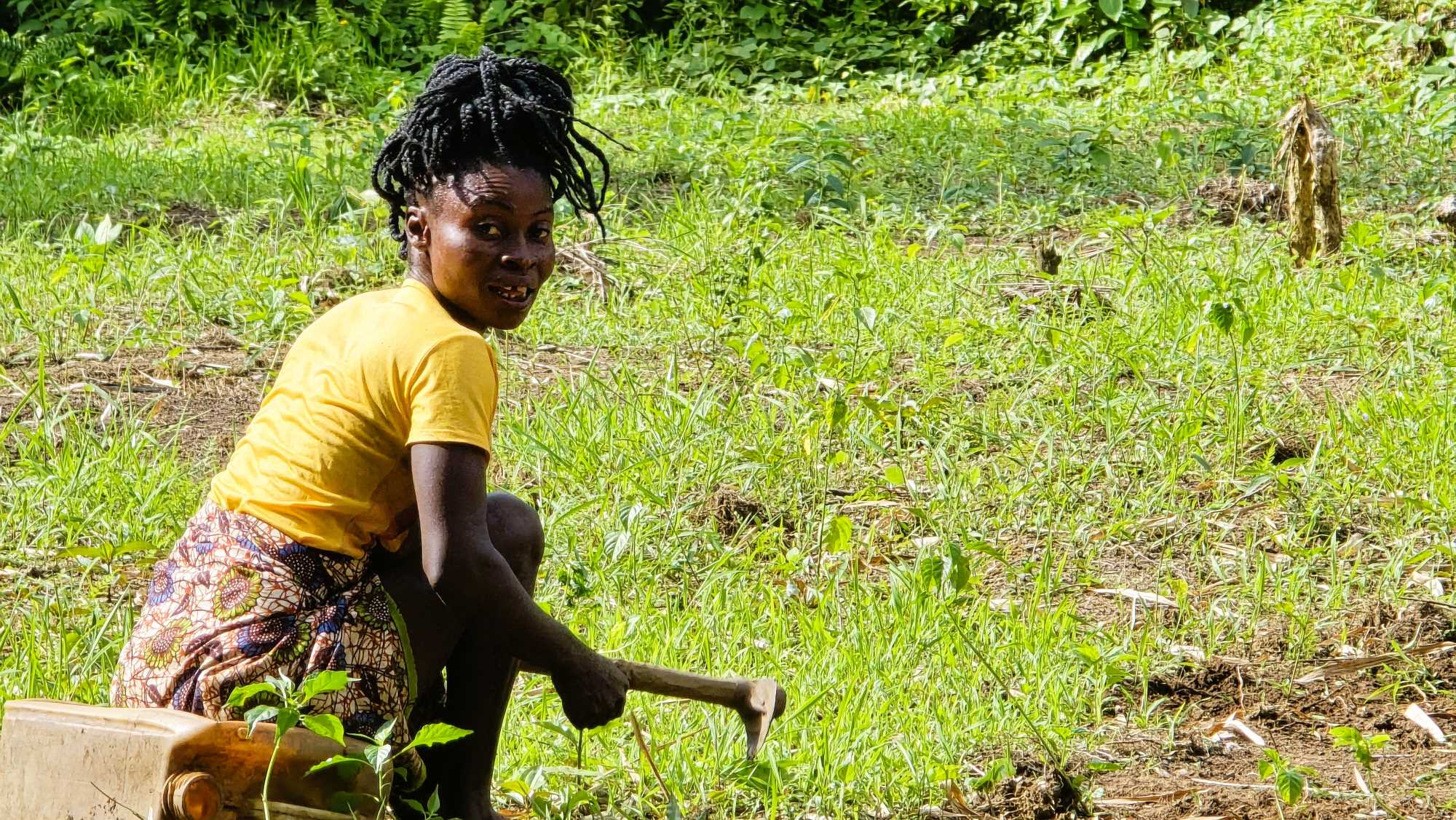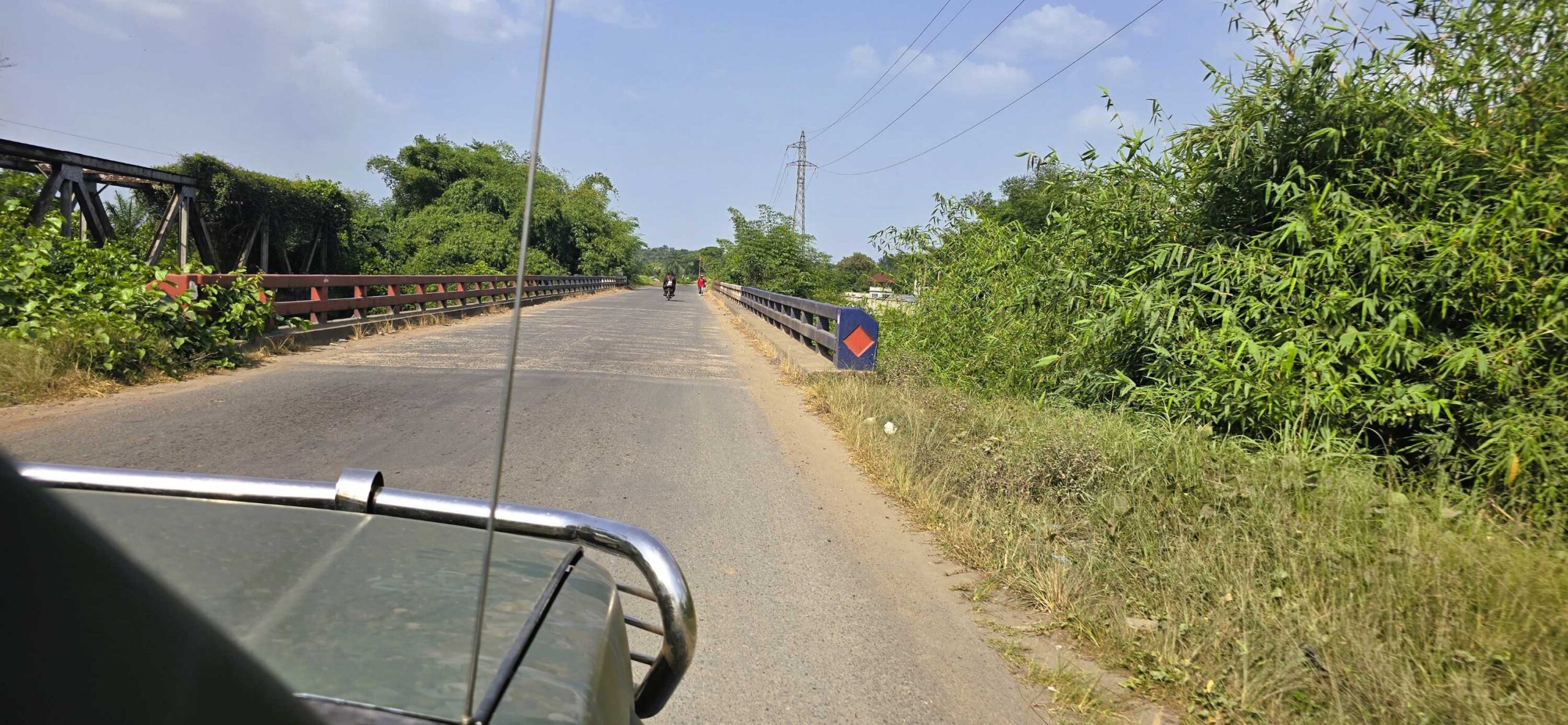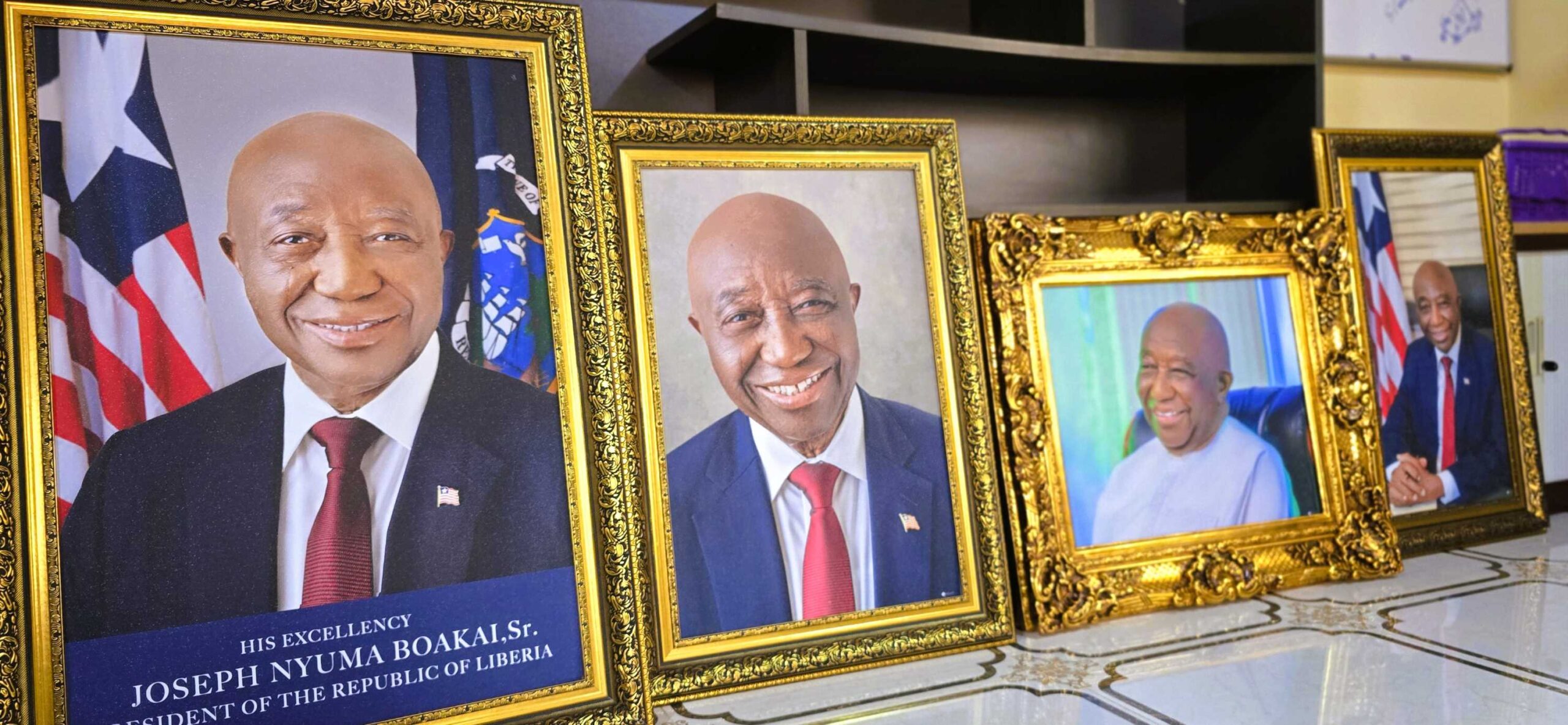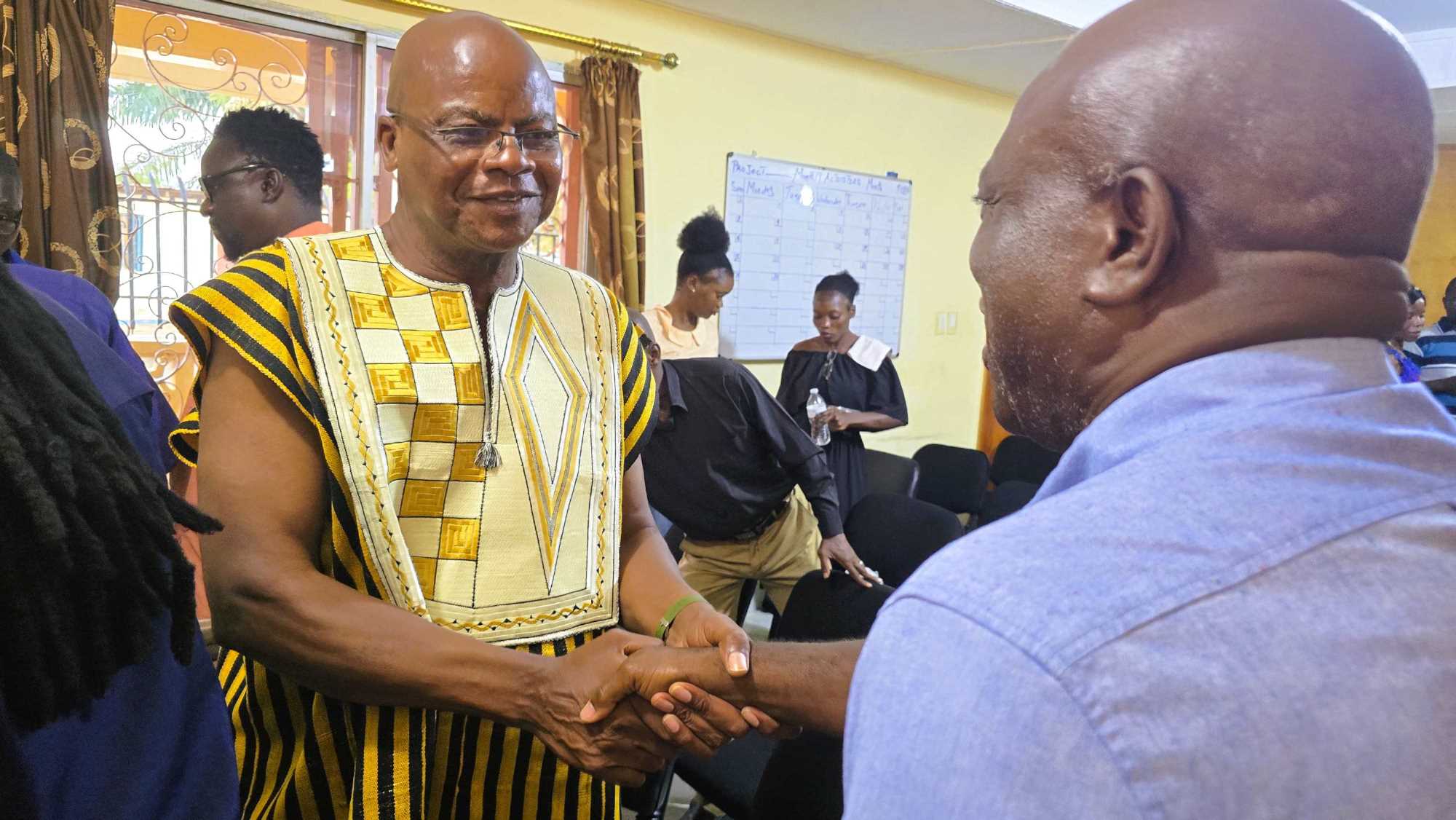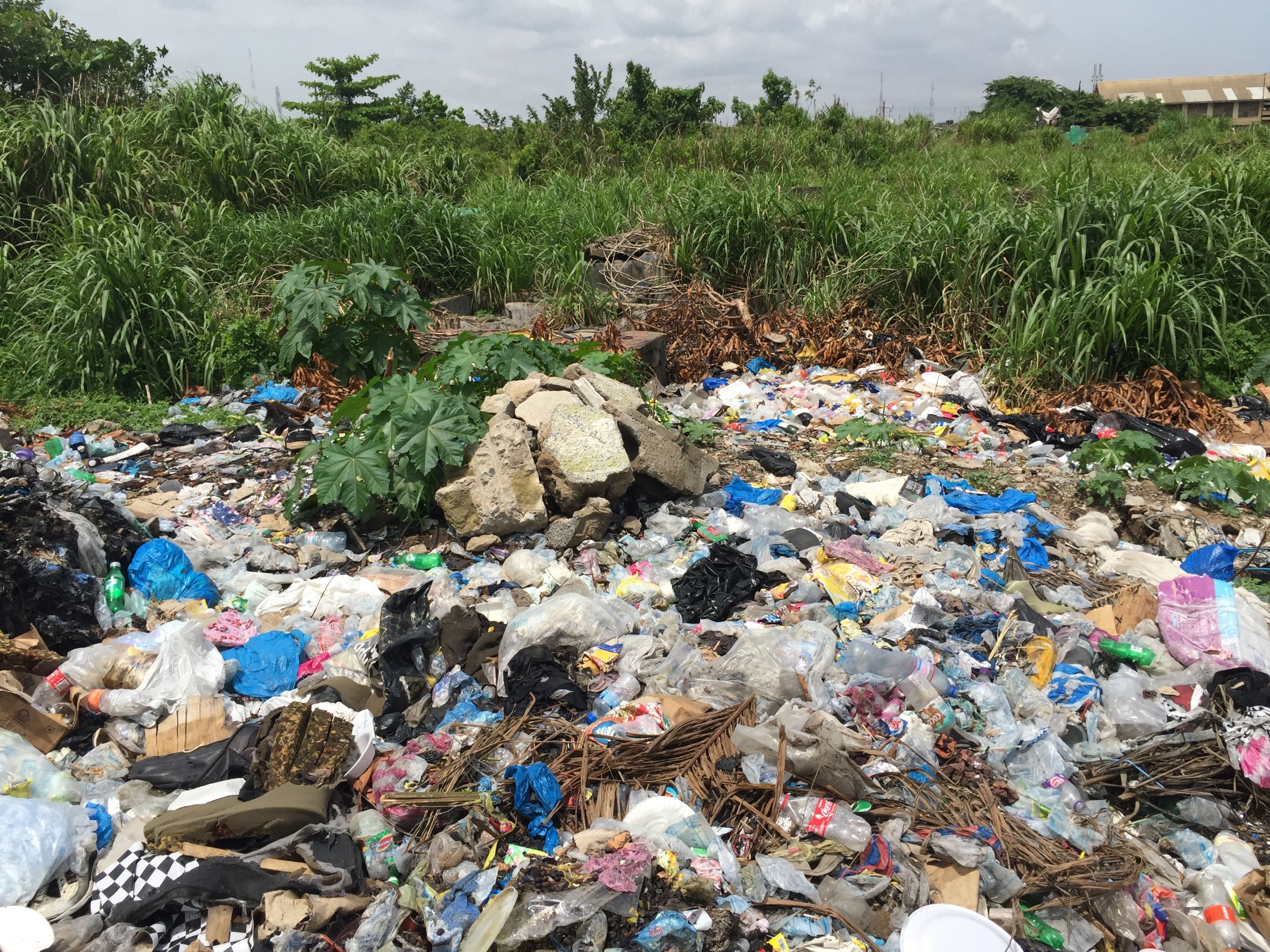West Africa: Witty U.S. diplomat uncovers Liberia’s shame!
At the state’s National Treasury press bureau where the writer briefly worked 2012 as contractor, journalists were tasked with monitoring Talk-Shows and the pages of newspapers daily in search of whatever false claims coming from “Jefferson Koijee” in order to write a prompt rejoinder.
Banner photograph captured south of Liberia’s national Palm Grove Cemetery in the heart of the capital, Monrovia, by writer May 2021. ALL PICTURES BY AUTHOR

By James Kokulo Fasuekoi|Editor-Publisher
Whenever America speaks, it doesn’t matter whether or not its national interest is in jeopardy, change is bound to happen. In 2003, in the middle of the second Liberian civil war, then belligerent ex-Liberian Pres. Charles Taylor left the country immediately for Nigeria the moment U.S. Pres. George Bush ordered him to leave Liberia.

So, it was two weeks ago when the U.S. Ambassador to Liberia, Michael McCarthy published a provocative article and criticized the Weah regime for keeping Liberia’s capital city, Monrovia, dirty all due largely to widespread corrupt practices thus depriving the locals of badly needed basic healthcare and sanitary services.

Outright corrupt practices by authorities in the war-torn nation have deeply hampered the provision of basic services to locals by government agencies since Weah took power in 2018. Corruption there had become so rampant from the top (executive branch) to the lowest (branch of government), making it impossible for officials to prosecute a single financial criminal.
Apparently, such an uncontrollable act has not only left the capital city (named after U.S. President James Monroe) awfully dirty but that it has also left “citizens diverting public medical resources and low-cost drugs for [their] personal gain” as Ambassador Michael McCarthy put it.
“Babies, young children, and birthing mothers”, according to him “are dying needlessly as a result” despite what he referred to as “the extra support given to the government” by the US. He made a reference particularly to Kolahun in Lofa, and Sanniquellie in Nimba, areas he said he had traveled and witnessed the shortage of low-cost drugs due to such corrupt practices.
US Taxpayers’ spending and disappointment

McCarthy, a former Peace Corps volunteer in West Africa, then enumerated the US’s yearly excessive spendings on Liberia: About $110 million yearly in foreign aid; over $79 million per year donated toward healthcare system; in addition to roughly $9 million, given to the Ministry of Health for purchasing medications and commodities for Liberians.
In spite of such a huge amount given the country from American taxpayers’ money toward the humanitarian needs of Liberians, nearly 20 years after war ended, the diplomat seems disappointed there isn’t much that local authorities can show as proof for those above amounts plus more given to Liberian authorities.
That a senior Monrovia City Corporation (MCC) official on “Monrovia Day” would lament that “no donor or external partner is funding the recurrent cost of solid waste collection and disposal” in the city, “unlike his three previous years in office”, inferring he has been “abandoned”, surprised McCarthy.
“Is there [not] a more basic local government responsibility than the collection and proper disposal of garbage?” McCarthy further asked in his 2 ½ page article. McCarthy is the first vocal U.S. foreign diplomat in Liberia to air his personal views and utter dismay concerning the way the Weah regime runs the nation’s affairs.

Many Liberians had criticized McCarthy’s predecessor, now Assistant Secretary of African Affairs, Linda Thomas-Greenfield for being “too soft” on Sirleaf’s administration while some claimed that she even “sided” with Ellen Sirleaf in the face of gross human rights abuses in addition to public corruption.
What seems interesting about McCarthy’s article is the satirical method he employed to convey his message which added power to his argument. Even more striking in reference to huge piles of garbage, spread throughout Monrovia, is the fact that his piece, titled: “What would J.J. Roberts have to say about this?” appeared on March 15, while Liberia celebrated first President Joseph Jenkins Roberts’ natal day.
Joseph Jenkins Roberts, a descendent of former black American slaves born in Norfolk, Viginia, USA, is the first president of the Republic of Liberia. He migrated to the African country with his parents at age 20.
McCarthy acknowledged that though the U.S. “no doubt, also failed to live up to some of the aspirations of our first president”, George Washington, he believes would be glad “to know that the country he fought to establish would today be working to support democracy and fight corruption both at home and in places like Liberia.”

Barely 48 hours had passed after his publication (on the embassy’s website) when the ambassador was spotted side by side standing at the national museum with Information Minister Ledgerhood Rennie and viewing historical photographs on Liberia, captured by Charles Allmon, a former Photo-Editor for National Geographic news magazine.
McCarthy’s captivating African tale
Concerning Monrovia’s present unsanitary conditions, he again skillfully drew a scenario, though scornful, based on his personal experience living in a village for two years in West Africa when he worked as a Peace Corps volunteer. And like most African villages, he records, the referenced village had “no electricity or running water.”
“First thing every morning, each household would take advantage of the cool, early morning daylight to sweep inside and outside and dispose of debris. Villagers then coordinated with the local government to deliver waste daily to a designated landfill,” he wrote in his fifth paragraph.
Now, he continued, one should compare that village culture (of his experience) to “the state of cleanliness in the city of Monrovia, which is more developed and a far wealthier community.” He reached a conclusion that it “Sadly does not compare.”
Both Liberians and foreigners who have traveled beyond Monrovia, to the countryside during the pre-war or postwar era can attest that McCarthy’s assertion is true regarding the cleanliness of villages in West Africa including Liberia.
The first duty in every household in the early morning hours is to sweep inside and outside in the yard of the house. Cleaning for Africans isn’t just mandatory but a way of life. It’s necessary indeed since domesticated animals often pass the night beneath house roofs, leaving their dung scattered everywhere.

Cleaning tradition remained in place in Liberia even after the war and fines could be levied by the town or village chief if people failed to adhere to the norm.
What does the Bible say about cleanliness?
Liberia prides itself as a Christian nation. This behooves its founders and those coming after them to follow Christian principles by living a Godly life modeled after the Messiah Jesus Christ.
Unfortunately scores of Liberia’s past and current leaders have never conformed to Godly principles.
God requires of His people to be like Him; “pure” and “clean”; not dirty, as clearly cited in Exodus 19:10-11, “And the LORD said unto Moses, Go unto the people, and sanctify them today and tomorrow, and let them wash their clothes.”
Moses had received this order in order to get the children of Israel ready to meet the LORD at Mount Sinai where He (God) would descend through fire and smoke! In addition God warned the men not to be intimate with their wives during the period as cited in Exodus 15, “…come not at your wives.”

If God can ask the children of Israel to “wash their clothes” before their encounter with Him at Mt. Sinai, that tells much more about His Holiness and why a Christian country such as Liberia needs to keep its capital reasonably clean.
One wonders “What would God have to say about this?”
Besides, what would be the excuse given by authorities for failing to maintain a single city when one considers the huge revenues generated daily at the Roberts International Airport, Freeport plus other seaports, Lands, Mines & Energy, and Maritime, to name a few?
Monrovia City Mayor’s reaction
Normally the head of Monrovia City Corporation (MCC), Mayor Jefferson Koijee would swiftly respond and provide some kind of excuses or “justifications’ ‘ in the wake of such unpleasant accusations.
But Koijee, who seems deeply interested in power and “politics” rather than keeping a focus on cleaning Monrovia didn’t directly respond or refute the diplomat’s derisive comments. Instead, he posted photographs of himself, dressed in field uniforms, surrounded by MCC workers and appearing to be giving orders to get people to work.
“Today, we launched a new model to keep our city clean, green and safe and hope together we all utilize this new method which will give our Monrovia a better sanitary outlook that we all can be proud of,” Koijee wrote in the post with his photographs. Thanks to a witty ambassador whose pressure yielded some results.
Regarding maintaining a clean and healthy city, more than four consecutive years have gone by with little or nothing achieved since Jefferson Koijee and team took over Monrovia City Hall and many hold deep doubt that things would change this time.
A former youth leader for CDC, Jefferson Koijee continuously criticized the Sirleaf regime for engaging in similar corrupt practices plus its failure to alleviate poverty in the country as promised initially by Sirleaf. Much of Koijee’s accusations seemed baseless or embedded in “half-truth.”
At the state’s National Treasury press bureau where the writer briefly worked 2012 as contractor, journalists were tasked with monitoring Talk-Shows and the pages of newspapers daily in search of whatever false claims coming from “Jefferson Koijee” in order to write a prompt rejoinder.
Monrovia lingering waste problem

Monrovia’s enduring waste problem remains the talk of Monrovia and Liberians and foreigners returning to the US and other parts of the world following their visit to the country.
Just like corruption and ritualistic killings, the filthy state of Liberia’s capital isn’t something new. But unlike Sirleaf’s regime that put the situation under control during Mary Broh’s term as city mayor, the present unsanitary condition of the city has reached a troubling level.
Loose sewages from aged old-broken pipes plus what appears to be a total lack of maintenance, together with littering garbage can be seen almost everywhere in the capital except near the Capitol Hill where the Executive Branch of government, including the presidential palace, is located.
Petty traders of all sorts are everywhere, thus compounding the garbage situation. And some can even place their goods almost on the main streets and dare motorists run over them. Huge piles of garbage can also be seen in most neighborhoods, the biggest being Duala, Red Light and Waterside general markets.
The worst spots to avoid are the intersection of Water and Michelin Streets and Newport Street next to the Soniewine creek because of the horrific stink that oozes from both locations 24/7.
For instance, at Michlin/Water Streets point, during our 2018-21 visits, an underground sewage system had given up, letting out huge quantities of human feces and rags which spread amassed, covering an entire block.
Yet, petty traders as well as Asians running stores at the spot had no choice but sat there daily, breathing in the awful odor and eating lunches.

Serious is the city’s garbage issue that Journalist Edwin Fayiah (now a retired reporter from Daily Observer) took it up as a special assignment, reporting it for years and even won an award for his work.
Other Liberian have also written articles lamenting the city’s garbage problem. Rufus S. Barry II, wrote a few months ago with this headline: “Liberia: Govt Officially Launched Bicentennial Celebrations-What Are We Actually Celebrating As a People and Country?”
Also, author/entrepreneur and The Voice of Liberia founder, Tamba D. Aghailas, similarly highlighted the issue in an article he wrote 2013 but the state has done nothing to cover Liberia’s shame.

